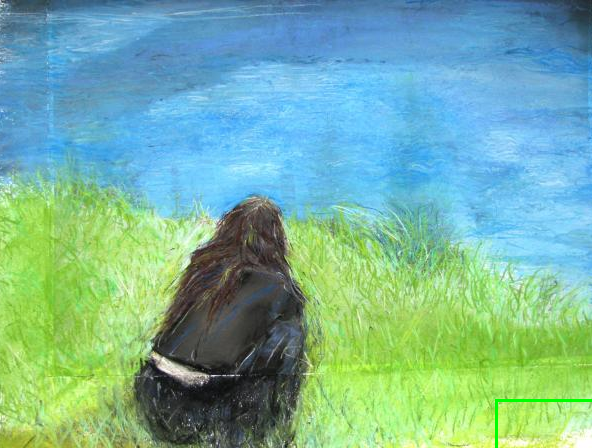
This week I’d like to share an excerpt from my book, The Secret Life of Babies, it’s a section on something I call Emergent Culture. After you’re done reading you can watch this week’s episode of The Sahius where I tell a story about one an emergent culture teaching I received while sleeping by a fire. Enjoy.
There is a behaviour mode in modern human society that is based, consciously or unconsciously, on a system in which one person’s success is predicated on the losses of another. Although survival in nature depends on a relationship of life feasting on death-as does the health of the human body-this social system does not replenish itself as the natural cycles of birth, death, decay, and rebirth do; rather, it tends to deplete resources and resist relationships with each life form in the cycle. Dominance culture tends toward individuation as an ideal and avoids incorporating authentic, naturally arising, and spontaneous cues into its values and decision making. Instead, it adopts ideology (as opposed to instinct) as guidance.
This “dominance” ethos began to flourish multiple times since the end of the Neolithic period, as migrating and conquering people circled and stretched over much of what is now Europe and Asia. But it reached a nameable cultural crescendo during the fifteenth century in Europe when it became more popularly known as the Enlightenment. The dominance culture can be characterized by the loss of relationship (or forgetting of relationship) with the natural world. Due to forgetting that the world holds enough care and abundance for us, humans dreamed up the need for surplus. From there ensued the leaving of the wild for cities and technologies fashioned out of natural resources, and the dwindling of a longtime ceremonial way of taking from the world that Paleolithic and Neolithic peoples were skilled with. The “taking of resources” without first requesting cooperation with gods (who early peoples know to be these resources) became a norm that has now culminated in a resource-deprived world with economic, agricultural, social, and political crises as the outcomes. For example, genetically modified seeds that produce “stronger” and “more productive” plants, highly technologized processes for childbirth, or disregard for natural capital when assessing the cost of industry characterize a society addicted to a mainly rational, individuated, and world-separated approach to life.
Although technology is a culmination of human evolution and genius, its overuse is misguided because it assumes there is something mistaken, wrong, or even irrelevant about nature (which includes weather patterns, plant life, human intuition, and animal intelligence). In a sense, there is a belief that nature is sometimes “right” (usually when it’s meeting pleasurable expectations) and often “wrong” (when outcomes are else than desired).

Archaeological findings indicate that, before the dominance culture was established, early seminomadic civilizations revered natural cycles. This was the prevailing cultural ethos from the Paleolithic period (more than thirty thousand years ago) through the early Neolithic period (just over ten thousand years ago). During this timid, there was little or no evidence of surprise attack and strong evidence that societies worshipped females deities. Renowned writer Riane Eisler, author of The Chalice and the Blade ( a monumental work of scholarship on precisely this topic), points out that one of the key qualities of peaceful society was the worship of female deities. This does not necessarily indicate that these early civilizations were dominated by “females”; rather, it suggests that there was a natural intelligence in place at the time that honoured the “mother”. And who better to refer than Mother Earth, from whom all life emerges? Later, we’ll see how cultures that no longer refer to Mother Earth are challenged to refer biological phenomena, be they mineral, plant, animal, or human.
It is here that we see a second distinct culture, the emergent culture. Emergent has a common meaning across such sectors as physics, physical geography, economics, and health care and means organic or naturally self-organized. To get a better sense of emergent, think of the synchronization paths of birds, the organization of schools of fish, tide, the cycle of season, and the synchronistic dance of forest ecology. Or consider patterns of fluctuation in the stock market, in organizational behaviour and in embryological development. All systems, when freely left to interact with themselves and with all their influences, manage to self-organize into recognizable, often cyclical patterns.
 Emergence itself, which is perceivable across space and time, is in itself not of any shape, size, or time. It does not “live” separated as a thing but instead, expresses as a consequence of another greater, unimaginable thing. Observing emergence is the closest one can come to perceiving that thing and is not a natural outcome of being born but instead a learned capacity to be in relationship with the greater thing-living plants, animals, humans, and the unseen.
Emergence itself, which is perceivable across space and time, is in itself not of any shape, size, or time. It does not “live” separated as a thing but instead, expresses as a consequence of another greater, unimaginable thing. Observing emergence is the closest one can come to perceiving that thing and is not a natural outcome of being born but instead a learned capacity to be in relationship with the greater thing-living plants, animals, humans, and the unseen.
Disbanding the dominance culture does not require persuasion, force, or rejection of its principles. In fact, any hostility toward the dying system will, ironically, sustain it, because hostility is a relic of the very separation that gave birth to it. It’s up for discussion whether the Emergent Culture is dawning anew or is formed of vestiges from pre-dominance culture that has been preserved and is blooming again. Although much valuable scholarly work has examined how cultures rise and fall, this section is not meant to summarize this research and determine the exact alchemical routes that have led today’s hybrid world; rather, it attempts to describe a cultural style that, although an outgrowth of all that has preceded it, is founded on conscious relationship with all things living.
Emergent culture, rather than having central tenets that would make it dogmatic, can be identified by the activities and sentiments around which its members organize their lives. Emergent cultures perceive, interpret, and revere life with the awareness that how they do so is integral to life living itself. In other words, the quality of the culture’s responsiveness makes it possible for life itself to thrive. Tree does not stand alone and sing to herself, nor does tide move for her own sake. We take pleasure, shelter, cleansing, and food from the living things around us. Our awe and the offerings we can’t help but make (gasps, songs, paintings, dances, poetry, and the like) in response to them may be the very “food” they require in order to live. Our willingness to sing back-essentially to be moved-is our side of what could be called a call and response. An emergent culture relies on cues from the Wordless Teachers in order to steward its next steps. (Excerpt from The Secret Life of Babies)
Watch Today’s Episode of The Sahius Below

